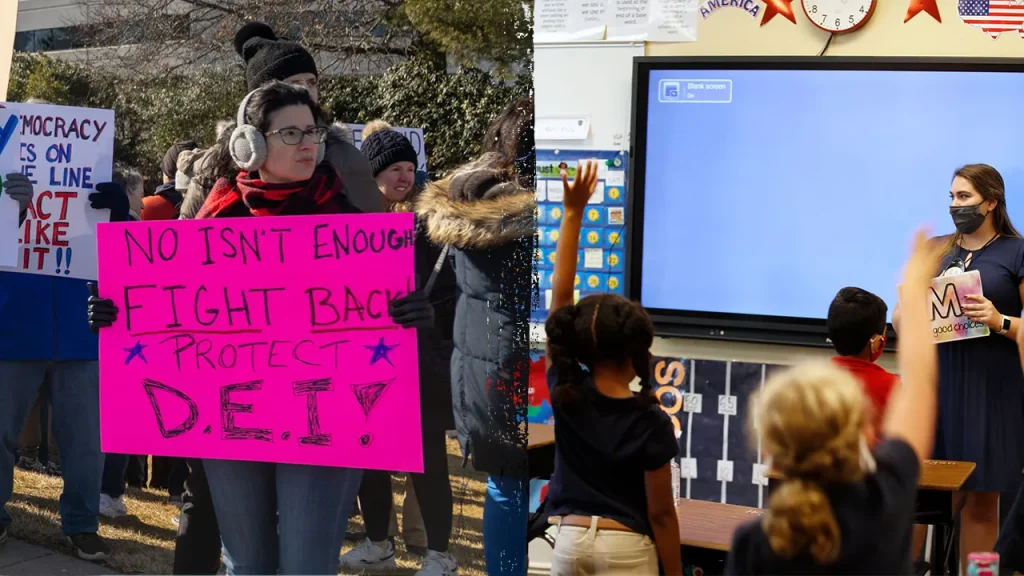Modernizing Education Laws: A Call for Comprehensive State Audits
In a significant development for American education, a coalition of over 20 parental rights organizations, led by Defending Education, has issued a formal request to all 50 states and Washington, D.C., calling for comprehensive audits of existing education laws and policies. The initiative, which represents a growing concern among parents nationwide, specifically targets diversity, equity, and inclusion (DEI) practices, hiring procedures, and policies related to gender and sex that may violate federal civil rights laws. According to Erika Sanzi, senior director of communications at Defending Education, “It has become common practice for states to violate federal law in the name of diversity.” The coalition argues that ideological pressure within state governments and school systems has led to widespread implementation of policies that may actually discriminate based on race and sex—the very issues these policies were ostensibly designed to address.
A central concern highlighted in the letter involves employee vetting practices in schools. The coalition points to alarming cases like that of Des Moines Superintendent Ian Roberts, who was detained by Immigration and Customs Enforcement after it was discovered he was working without proper authorization. Perhaps more disturbing is the coalition’s claim that, on average, a school employee who sexually abuses children is passed through three different school districts and can potentially harm up to 73 children before facing serious consequences. The letter specifically criticizes collective bargaining agreements between teacher unions and school districts that sometimes allow for the “scrubbing” of personnel files, effectively erasing records of misconduct when an employee leaves a district. This practice creates a dangerous lack of transparency that potentially puts students at risk across multiple school systems.
The coalition’s concerns extend beyond hiring practices to include what they characterize as discriminatory DEI initiatives. While the Trump administration has taken steps to roll back DEI programs through executive orders targeting federal agencies, the military, and educational institutions, the coalition claims many organizations have simply rebranded these initiatives using different terminology. Will Hild of Consumers’ Research described this phenomenon as “the exact same toxic nonsense under a new wrapper,” suggesting that companies and schools are merely finding creative ways to continue practices that may discriminate against certain groups. This apparent deception has increased the urgency for comprehensive state-level audits to ensure that educational institutions comply with federal anti-discrimination laws regardless of how policies are labeled.
Legal experts from the coalition have identified specific states where education laws appear to directly contradict federal anti-discrimination provisions. Sarah Parshall Perry, vice president at Defending Education, singled out Iowa, Illinois, and Maine as states whose laws “demand race and sex-based preferencing in everything from programs to sports, scholarships to employment.” The coalition argues that the Civil Rights Act’s requirements for equality in educational programs are being systematically undermined in classrooms across America. They emphasize that state leaders have both the authority and responsibility to ensure their education laws align with federal civil rights protections, highlighting the fundamental principle that education governance primarily resides at the state level.
The financial implications of current DEI practices in education are substantial. According to a report earlier this year from Defending Education, DEI consultant groups have secured over $123 million in taxpayer-funded contracts from K-12 schools across 40 states, spanning politically diverse regions from Florida to California. This widespread financial commitment to DEI programs across political boundaries suggests the depth to which these practices have become embedded in American education, regardless of a state’s political leanings. The coalition argues that this significant investment of public funds demands greater scrutiny to ensure these programs comply with federal law and truly serve the interests of students rather than promoting potentially discriminatory practices under the guise of inclusion.
The coalition’s letter represents a formal call for what they term “legal housekeeping” to ensure schools operate lawfully, transparently, and in students’ best interests. The organizations emphasize that while education is primarily a state responsibility, all states accepting federal funding must adhere to federal civil rights laws. The letter urges state leaders to repeal or revise any provisions that allow race or sex-based preferences, violate Titles VI, VII, or IX of the Civil Rights Act or the Equal Protection Clause, or undermine student safety through inadequate hiring practices. This comprehensive review seeks to establish clear guidelines that protect all students and ensure that educational institutions fulfill their primary mission of providing quality education in a safe environment, free from discrimination or ideological bias. As this initiative gains traction, it may represent a significant shift in how states approach education policy and governance in the coming years.


